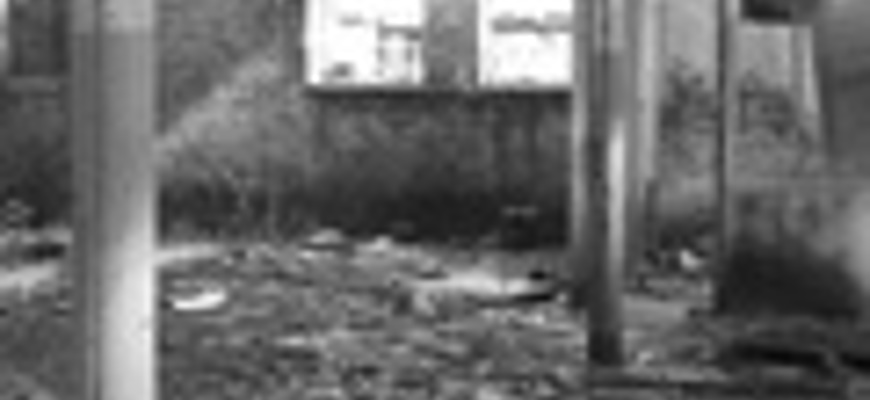Asbestos: a nasty upset

It is interesting times for those involved in industrial disease litigation in Scotland. Practitioners will be watching the position in England closely, following the decision of the Court of Appeal in a group of 10 test cases, Grieves v FT Everard & Sons. The Court of Appeal has decided that compensation is no longer payable for pleural plaques caused by exposure to asbestos. The decision overturns practice established by 20 years of case law in England, and indeed in Scotland. Leave was granted to appeal to the House of Lords. What will the practical effect in Scotland be in the meantime?
The law pre-Grieves
The case involved 10 former shipping workers who developed the condition of pleural plaques and were awarded damages. Pleural plaques is a benign disease which can occur when asbestos fibres are inhaled. It does not of itself lead to more serious symptomatic asbestos-related conditions, but does indicate that the lungs have been penetrated by asbestos fibres, and that there is a risk of developing more serious asbestos-related conditions. It is a marker highlighting that that there has been exposure.
Each of the claimants in these cases was negligently exposed to asbestos by his employer. The case presented to the court was that there were three consequences of that exposure: first, that the claimant had developed pleural plaques; secondly, that the claimant was at risk of developing a more serious asbestos-related disease; and thirdly, that he had developed anxiety at the prospect of developing that disease. It was accepted that each of these consequences alone would not amount to an actionable injury. However, for over 20 years the law in England has allowed these consequences to be aggregated, so that taken together, they can form a cause of action. The law in Scotland also allows damages to be recovered for pleural plaques on a similar basis.
The Court of Appeal held that there is no legal precedent or logical basis to aggregate several heads of claim which individually could not found a cause of action. They also saw no reason to depart from that on policy grounds, in the specific case of pleural plaques.
Clearly, this decision is enormously important for practitioners on both sides of the fence. There are of course arguments either way as to whether it is correct as a matter of policy. However, that is a question for another day. The present state of flux raises immediate considerations for practitioners in Scotland as to what to do in existing cases and the implications for new claims.
Tactics with ongoing cases
Until the process which began in the High Court in England is started here, or until the decision of the House of Lords is known, the fact remains that the law in Scotland has not actually changed. However, in practice, the majority of pleural plaques cases settle extrajudicially. Many defenders will have employers’ liability insurers based in England who will be reluctant to settle cases extrajudicially until the law in Scotland is tested.
In cases where proceedings have already been raised, parties really have two choices. If the defender relies on Grieves, the case will require to proceed to proof to test the issue. Alternatively a pursuer might seek to have the case sisted pending the outcome of the appeal to the House of Lords. In actions raised under the Chapter 43 personal injury rules, the General Department will not allow a motion to be enrolled seeking a sist for more than six months. Parties will therefore require to review the situation in six months’ time. There may of course be a decision which clarifies matters in Scotland by that time.
What about new claims?
In cases where proceedings have not been raised, assuming the defender is unwilling to settle extrajudicially, the question is slightly more complicated. The pursuer might wish just to intimate the claim and await a decision from the Scottish courts or the decision of the House of Lords in Grieves, in order to avoid the potentially irrecoverable expenses of raising an action. An issue arises though if the claim might become time barred by the time such a decision is available. Unless a defender is willing to agree that a time bar point will not later be taken, there would seem to be no alternative but to raise proceedings and seek to have these sisted pending the decision of the House of Lords. Expenses of course then become an issue.
Waters are presently muddy in this field in Scotland. A decision which clarifies matters will no doubt be welcomed by pursuers and defenders alike.
Michael Wells, Senior solicitor, Morton Fraser LLP
In this issue
- Mutual trust is the key
- Last man standing
- In the public eye
- The cost of succession (and who pays the price)
- MHTs: take another look
- The profit trend
- Getting a get in Scotland
- Appealing to charity
- It's not broken! So why fix it?
- Rolling back the years
- Clock watching
- Child support: lobby the review
- The ECJ: a growing sphere of competence?
- Bone of contention
- Asbestos: a nasty upset
- The form for selection
- Reshaping sexual offences
- Hunting down the pirates: part 2
- Better bargaining
- Website reviews
- Book reviews
- ARTL: your chance to be heard
- SDLT: new lost forms procedure






